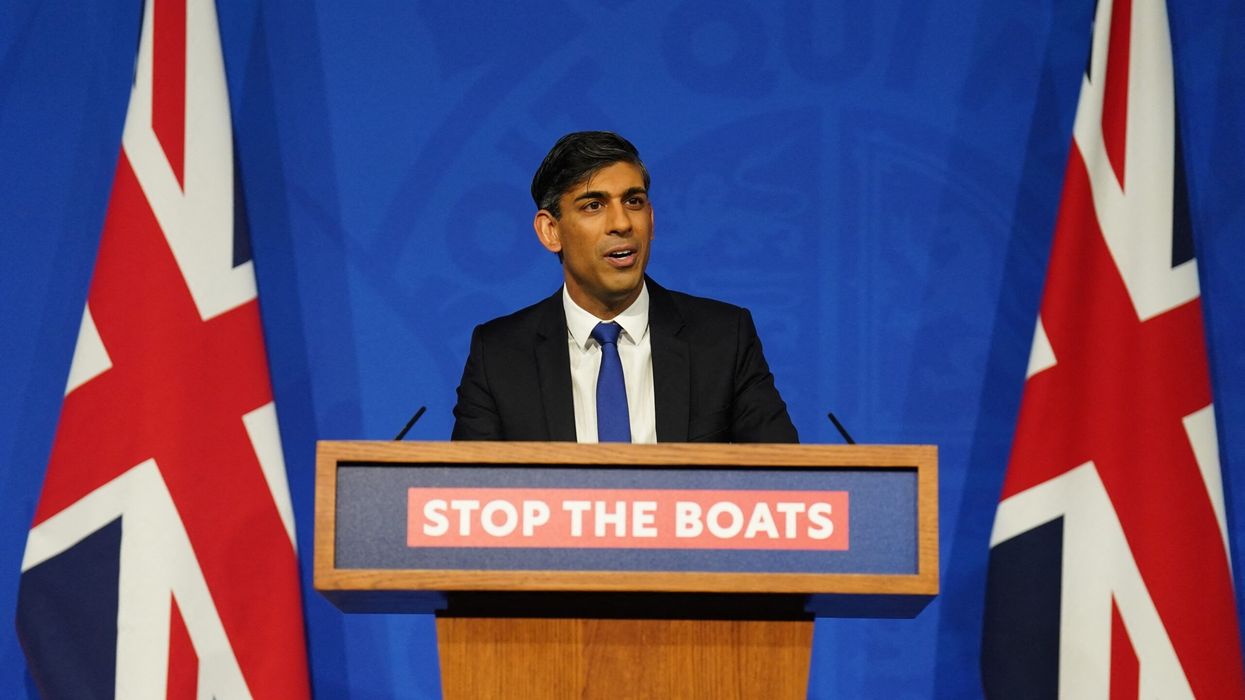Facing a crucial vote on the Rwanda bill, Rishi Sunak encounters resistance as two Tory deputy chairmen and a ministerial aide, namely Lee Anderson, Brendan Clarke-Smith, and Jane Stevenson, resigned to rebel against the legislation, seeking amendments for increased stringency.
In a setback for the prime minister's authority, 60 Tory MPs support rebel amendments.
While No 10 remains optimistic about the overall passage of the bill, preparations for concessions are underway, the BBC reported.
Parliamentary discussions on proposed changes continue, focusing on deterring Channel crossings and reviving plans to send asylum seekers to Rwanda - in the Commons on Wednesday (17), with a vote expected, if no amendments are made.
If the bill faces opposition from approximately 30 Tory MPs during its final Commons hurdle, it risks defeat. Currently, only a few Conservative MPs have definitively expressed their intention to vote against the bill.
At least four Conservative MPs, including former ministers Robert Jenrick and Suella Braverman, have publicly declared their readiness to vote against the bill unless improvements are made.
However, the extent of potential additional support for their stance remains uncertain.
Illegal Migration Minister Michael Tomlinson, in an interview described the Tory rebellion against the policy as indicative of a "constructive and robust debate."
Seeking to downplay Conservative divisions, he emphasised that nearly every individual on the Conservative side who spoke expressed a desire for the scheme to be effective.
Tomlinson expressed regret over the resignations of the two party deputy chairmen and a parliamentary private secretary, emphasising that despite the differences, all of them share a common desire for the policy to be effective.
He noted that there was minimal divergence of opinion on the Conservative benches.
The illegal migration minister acknowledged that the government is considering new regulations for civil servants. This includes making it the default assumption that orders from international courts, temporarily halting flights to Rwanda, should be disregarded.
The FDA union, representing senior civil servants, is already opposing this idea, asserting that it would require officials to violate international law.
On Tuesday (16), proposed amendments to the bill, aiming to prevent the use of international law to impede someone's deportation to Rwanda and significantly restrict an individual's deportation appeal rights, faced defeat.
Despite the defeat, these amendments garnered substantial support from prominent Tories, including former home secretary Braverman and former prime minister Liz Truss.
Sunak has remained firm against yielding to the demands of critics from the right wing of the party, risking potential loss of support among more centrist MPs if he were to concede.
Nonetheless, as an effort to pacify certain critics, the government is contemplating an alteration to the Civil Service Code, introducing a presumption that emergency injunctions from the European Court of Human Rights in Strasbourg should be disregarded.
This initiative is part of an effort to quell the Conservative rebellion against Sunak's Rwanda legislation.
Even in the event of a government victory, it would not be without a political toll, as discussions on the matter have laid bare the extent of fractures within the Conservative Party.
A substantial rebellion could also tarnish the prime minister's standing, given his emphasis on the Rwanda policy as a central tenet of his commitment to curbing small boats crossing the Channel.
Miriam Cates, a supporter of Tuesday's amendments, said that she might be "potentially" inclined to vote against the entire bill.
However, she added, "But we've got 24 hours - that's a long time in politics. We've got more votes tomorrow on more amendments so we're not at that position yet where we can make that decision.”
Should it gain approval from MPs, the government still faces a formidable task in navigating the bill through the Lords, where it is poised to encounter additional opposition.
On Tuesday (16) evening, Sunak experienced his most significant rebellion since assuming the role of prime minister, as 60 Conservatives defied the government to support changes to the bill proposed by MPs on the right of the party.
Shortly before the votes, Anderson and Clarke-Smith declared their resignations in support of the amendments. They clarified that their stance wasn't against the bill but aimed at ensuring its "watertight" integrity.
Stevenson, serving as a parliamentary private secretary in the Department for Business and Trade, also affirmed her resignation after casting her vote in favour of the rebel amendments.
Labour contended that these resignations underscored Sunak's perceived weakness in leading both his party and the country.
Pat McFadden, the national campaign coordinator for the party, remarked that these resignations highlight the perception among even senior Tories that the Conservatives have failed.
It's further evidence of the complete chaos within the Tory ranks regarding their failing Rwanda policy, all while placing an “extortionate price” on the taxpayer, McFadden said.




